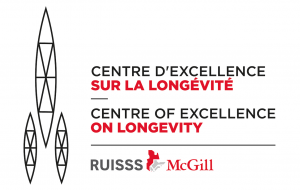MedTeq: aging in place
From the age of 75 on, over 70 % of elderly persons will present a disability which will limit the accomplishment of daily activities. Even with these disabilities, elderly persons wish to remain at home for as long as possible and this objective of aging at home is one of the provincial and federal governments’ greatest priorities. In this context, it is critical to conceive of innovative solutions which will empower elderly persons to age in the place of their choosing. To this end, in a human and financial resource-scarcity context, technology is an essential supporting facet of the public healthcare system and of all its ecosystems.
Assistive technology for cognition to increase safety at home: Cook
Maintaining the ability to prepare meals independently while suffering from Alzheimer’s disease (AD) is of paramount importance to both sufferers and their caregivers. Beyond it being necessary to feed oneself, meal preparation supports self-esteem and maintenance of social roles. However, numerous difficulties relating to task completion and inherent safety concerns, such as burns and fire hazards, make this a high-risk activity for individuals with cognitive deficits.
Web-platform of the RUIS McGill Centre of Excellence on Longevity
The current rate of population aging means that the early identification of illnesses and their potential consequences has become a significant public health issue. This early detection allows for adapted preventive and/or curative interventions and therefore the limiting of adverse outcomes on the health and quality of living of elderly patients suffering from these illnesses.
Implementation of Cesam in Tan Tock Seng hospital geriatric clinic, Singapore
The Centre of Excellence on Longevity Self-Administered questionnaire (CESAM) is a digital tool aimed for older adults to self-assess their functional and cognitive health status themselves and become involved players in their own healthcare, with high levels of involvement and activity.
Developed by the Centre of Excellence on Longevity, the CESAM is the first scientifically validated self-assessment tool used to evaluate the state of general and functional health in elderly people. It provides recommendations to follow based on the provided information.
It was developed to predict adverse health events and to provide early warning for
individuals who are at risk of suffering significant disturbance to their overall health so that
preventative measures can be put in place.



